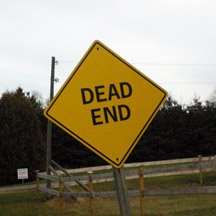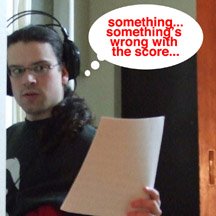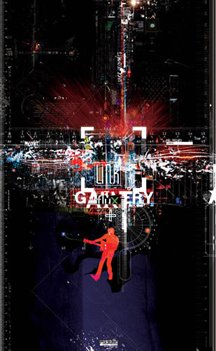 I'm not a historian or expert on Chinese history, or even really familiar with the life of Mao. And that's why I picked up this book in the first place, to get a history. Well, I got that all right, and a pretty messed up one at that. Under Mao's rule, it is believed that over 70 million people died during peacetime, most of those his own people. He was willing for half of China to die to achieve military-nuclear superpowerdom. He wanted the bomb. He even scared Stalin in the end, probably causing Stalin's heart attack and subsequent death. Stalin and Hitler look like fairy godfathers in comparison. They preferred to carry out their torture and killing in secret. Mao liked to see people suffer in public. My big burning question is, and Im sure this is on many peopl's minds... Why is he still considered a hero, even today many of the Chinese people regard him as some kind of GOD who "freed" the people.
I'm not a historian or expert on Chinese history, or even really familiar with the life of Mao. And that's why I picked up this book in the first place, to get a history. Well, I got that all right, and a pretty messed up one at that. Under Mao's rule, it is believed that over 70 million people died during peacetime, most of those his own people. He was willing for half of China to die to achieve military-nuclear superpowerdom. He wanted the bomb. He even scared Stalin in the end, probably causing Stalin's heart attack and subsequent death. Stalin and Hitler look like fairy godfathers in comparison. They preferred to carry out their torture and killing in secret. Mao liked to see people suffer in public. My big burning question is, and Im sure this is on many peopl's minds... Why is he still considered a hero, even today many of the Chinese people regard him as some kind of GOD who "freed" the people. The authors Jung Chang and Jon Halliday have put out what I think is a pretty well researched and accurate account of the life of this mad bastard. Mao was a man willing to do anything and everything to make his way to the top. He conquered China but that wasn't enough, he wanted to conquer the world and he would've stopped at nothing to do it. Chang and her husband were shocked at what they discovered during the 10 years they spent researching this book. Halliday was able to access Russian archives on China that were inaccessible until recently. Some of his more shocking claims have not been examined by other historians as of yet. Chang travelled several times to China during the course of her research, interviewing many of those who were close to Mao, as well as alleged eyewitnesses to events such as the crossing of Luding Bridge.
The authors Jung Chang and Jon Halliday have put out what I think is a pretty well researched and accurate account of the life of this mad bastard. Mao was a man willing to do anything and everything to make his way to the top. He conquered China but that wasn't enough, he wanted to conquer the world and he would've stopped at nothing to do it. Chang and her husband were shocked at what they discovered during the 10 years they spent researching this book. Halliday was able to access Russian archives on China that were inaccessible until recently. Some of his more shocking claims have not been examined by other historians as of yet. Chang travelled several times to China during the course of her research, interviewing many of those who were close to Mao, as well as alleged eyewitnesses to events such as the crossing of Luding Bridge. People who've read Chang's prior work, WILD SWANS, are familiar with the woman's family history, that both of her parents were victims of Mao's Cultural Revolution, and that her father suffered permanent physical and mental damage from being routinely tortured while he was imprisoned. As a result, there has been much scorn and negative criticism against this book, calling her a fraud, etc etc. In the end, many people concluded that the book is factually and intellectually unreliable. Some people also say that it reads like an anti-communist propaganda book. Maybe, but I don't have a problem with that at all.
People who've read Chang's prior work, WILD SWANS, are familiar with the woman's family history, that both of her parents were victims of Mao's Cultural Revolution, and that her father suffered permanent physical and mental damage from being routinely tortured while he was imprisoned. As a result, there has been much scorn and negative criticism against this book, calling her a fraud, etc etc. In the end, many people concluded that the book is factually and intellectually unreliable. Some people also say that it reads like an anti-communist propaganda book. Maybe, but I don't have a problem with that at all.Even though he was born into a poor peasant family, Mao didn't give a shit for the welfare of the Chinese peasantry. He avoided work at all costs and pretty much just read books and attended different schools during his childhood, wasting his father's money. Mao became a Communist at the age of 27 for purely pragmatic reasons: a job and income from the Russians. According to the authors, Mao was responsible for the famine resulting from the Great Leap Forward and he actually made it worse by giving the OK to continue to export grain even though it was very clear that China did not have enough grain to feed its own people. Mao killed or tortured pretty much anyone who got in his way or tried to oppose him, whether they were political opponents, personal friends or peasants. Didn't matter. Another claim is that Mao's decisions during the Long March were not really as heroic and ingenious as people have generally believed; Chang and Halliday state that Chiang Kai-shek deliberately "let Mao go" because Chiang Kai-shek's son was being held hostage in the Soviet Union. Communist China was not a funpark to work and live at all during the Chinese Civil War, such as the Jiangxi and Yan'an soviets, were ruled through terror and mass murder. Mao willingly sacrificed thousands of troops simply in order to get rid of individual rivals from within the Communist Party, such as Chang Kuo-tao.
 The Crossing of Luding Bridge? Didn't even happen according to Chang and Halliday. No raging battle nor "heroic" crossing against impossible odds like most of the history books have written, it was all Communist propaganda. There was apparently a witness, Li Xiu-zhen, who was still alive at the time this was written. She saw no fighting claims there was no fire on the bridge. That also made it into historical accounts until recent years. Nationalist Kuomintang's battleplans and communiques that indicated the force guarding the bridge had been withdrawn before the Reds even arrived. Another eye witness, a local blacksmith who had witnessed the event said that when the opposing troops were coming towards the Red Army, they pussied out and ran away. Not much of a battle. Other Chinese journalists will also attest that the Luding Bridge battle was greatly exaggerated.
The Crossing of Luding Bridge? Didn't even happen according to Chang and Halliday. No raging battle nor "heroic" crossing against impossible odds like most of the history books have written, it was all Communist propaganda. There was apparently a witness, Li Xiu-zhen, who was still alive at the time this was written. She saw no fighting claims there was no fire on the bridge. That also made it into historical accounts until recent years. Nationalist Kuomintang's battleplans and communiques that indicated the force guarding the bridge had been withdrawn before the Reds even arrived. Another eye witness, a local blacksmith who had witnessed the event said that when the opposing troops were coming towards the Red Army, they pussied out and ran away. Not much of a battle. Other Chinese journalists will also attest that the Luding Bridge battle was greatly exaggerated. Estimates of the numbers of deaths during this period vary pretty heavily, but Chang and Halliday's estimate is one of the highest. Sinologist Stuart Schram, in a review of the book, noted that the exact number of deaths under Mao's rule "has been estimated by well-informed writers at between 40 and 70 million. In addition to exporting pretty much every crop that China had, causing the greatest famine in history (The Great Leap Forward) Mao also grew mass quantities of opium for export. Most of the food and grain was exportied to Russia to buy nuclear and arms industries: close to 38 million people were starved and slave-driven to death in 1958-61. Chang and Halliday argue that this period accounts for roughly half of the 70 million total. An official estimate by Hu Yaobang in 1980 put the death toll at 20 million, whereas Philip Short in his 2000 book Mao: A Life found 20 to 30 million to be the most credible number. Chang and Halliday's figure is 37.67 million, which historian Stuart Schram indicated that he believes "may well be the most accurate. Professor R. J. Rummel published updated figures on world-wide democide in 2005, stating that he believed Chang and Halliday's estimates to be mostly correct and that he had revised his figures for China under Mao accordingly.
Estimates of the numbers of deaths during this period vary pretty heavily, but Chang and Halliday's estimate is one of the highest. Sinologist Stuart Schram, in a review of the book, noted that the exact number of deaths under Mao's rule "has been estimated by well-informed writers at between 40 and 70 million. In addition to exporting pretty much every crop that China had, causing the greatest famine in history (The Great Leap Forward) Mao also grew mass quantities of opium for export. Most of the food and grain was exportied to Russia to buy nuclear and arms industries: close to 38 million people were starved and slave-driven to death in 1958-61. Chang and Halliday argue that this period accounts for roughly half of the 70 million total. An official estimate by Hu Yaobang in 1980 put the death toll at 20 million, whereas Philip Short in his 2000 book Mao: A Life found 20 to 30 million to be the most credible number. Chang and Halliday's figure is 37.67 million, which historian Stuart Schram indicated that he believes "may well be the most accurate. Professor R. J. Rummel published updated figures on world-wide democide in 2005, stating that he believed Chang and Halliday's estimates to be mostly correct and that he had revised his figures for China under Mao accordingly. The book is banned in China, because the current Communist regime is fiercely perpetuating the myth of Mao. Today Mao's portrait and his corpse still dominate Tiananmen Square in the heart of Beijing, and the regime declares itself to be Mao's heir.
The book is banned in China, because the current Communist regime is fiercely perpetuating the myth of Mao. Today Mao's portrait and his corpse still dominate Tiananmen Square in the heart of Beijing, and the regime declares itself to be Mao's heir.On of the funniest things I read in this book was that the bastard refused to take a bath for 27 years, he apparently didn't like baths. Maybe that's another reason no one wanted to get near him. Just imagining how hot and humid China is, especially in the summer months, I can only imagine how the fucker smelled.
Read this book and draw your own opinions.











































No comments:
Post a Comment